
Robert Paul Wolff is an American political philosopher and professor emeritus at the University of Massachusetts Amherst.
George Woodman Hilton was a United States historian and economist, who specialized in social history, transportation economics, regulation by commission, the history of economic thought and labor history.
Philosophical anarchism is an anarchist school of thought which focuses on intellectual criticism of authority, especially political power, and the legitimacy of governments. The American anarchist and socialist Benjamin Tucker coined the term philosophical anarchism to distinguish peaceful evolutionary anarchism from revolutionary variants. Although philosophical anarchism does not necessarily imply any action or desire for the elimination of authority, philosophical anarchists do not believe that they have an obligation or duty to obey any authority or conversely that the state or any individual has a right to command. Philosophical anarchism is a component especially of individualist anarchism.

Anarchism: From Theory to Practice is a book by Daniel Guérin noted as a "definitional tract in the 'ABCs' of anarchism". First published in French in 1965, the 1970 English translation is Guérin's best-known work, describing the intellectual substance and actual practice of anarchism. The English translation by Mary Klopper includes a foreword by Noam Chomsky, who describes it as an attempt "to extract from the history of libertarian thought a living, evolving tradition".
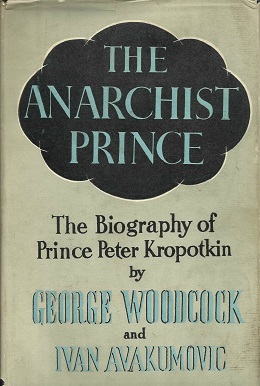
The Anarchist Prince is a biography of Peter Kropotkin by George Woodcock and Ivan Avakumović.
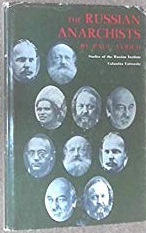
The Russian Anarchists is a history book by Paul Avrich about the Russian anarchist movement from the 19th century to the Bolshevik revolution.
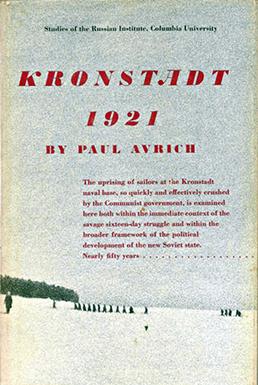
Kronstadt, 1921, is a history book by Paul Avrich about the 1921 Kronstadt rebellion against the Bolsheviks.
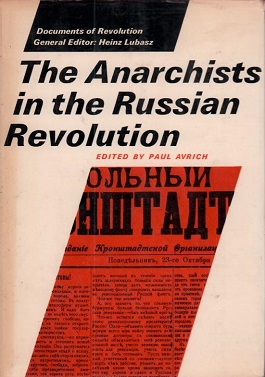
The Anarchists in the Russian Revolution is a 1973 history book by Paul Avrich and collection of primary sources about the role of Russian anarchists during the Russian revolution.

The Haymarket Tragedy is a 1984 history book by Paul Avrich about the Haymarket affair and the resulting trial.

Anarchist Portraits is a 1988 history book by Paul Avrich about the lives and personalities of multiple prominent and inconspicuous anarchists.

Partisans of Freedom: A Study in American Anarchism is a 1976 history book about the history of anarchism in the United States by William O. Reichert.
Radical Abolitionism: Anarchy and the Government of God in Antislavery Thought is a 1973 book by Lewis Perry on radicals in the abolitionist movement in the United States.

The Communal Experience: Anarchist and Mystical Counter-Cultures in America is a book-length historical and sociological study of cultural radicalism in the United States, written by historian Laurence Veysey and published in 1973 by Harper & Row.
Fields, Factories, and Workshops is an 1899 book by Russian anarchist Peter Kropotkin that discusses the decentralization of industries, possibilities of agriculture, and uses of small industries.

The Anarchism of Nestor Makhno, 1918–1921 is a book-length study of Nestor Makhno written by Michael Palij and published by the University of Washington Press in 1976.
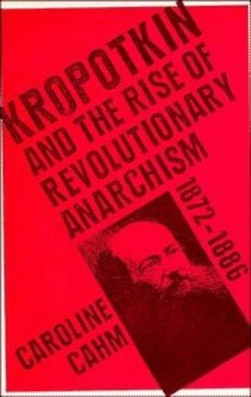
Kropotkin and the Rise of Revolutionary Anarchism, 1872–1886 is a history book by Caroline Cahm that traces anarchist Peter Kropotkin's ideas and influence within European radicalism and socialism during his life.

Language and Mind is a 1968 book of three essays on linguistics by Noam Chomsky. An expanded edition in 1972 added three essays and a new preface.
This is a list of works by Murray Bookchin (1921–2006). For a more complete list, please see the Bookchin bibliography compiled by Janet Biehl.

Kingsley Widmer (1925–2009) was an American literary critic.














